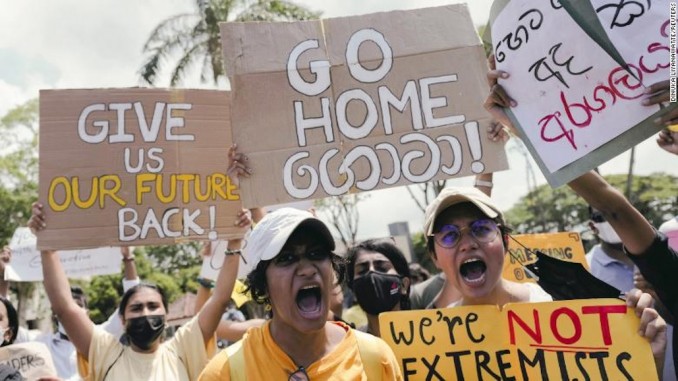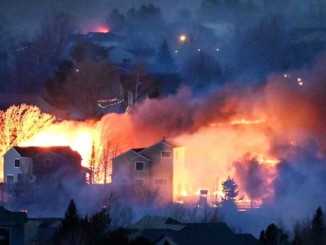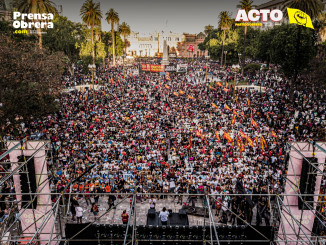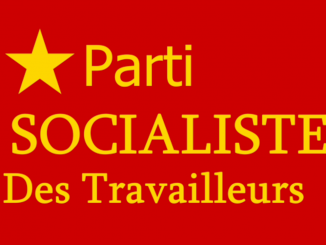
This interview was translated from French, originally published in l’Anticapitaliste no 611, the biweekly journal of the NPA.
In recent weeks, Sri Lanka has often been mentioned in the international press. We zoom in on this country where the mafia clan of the Rajapaksa family has been in power for more than twenty years, combining nepotism with violence against the Tamils and the poor population in general.
Interview with Don Samantha, Sri Lankan Revolutionary Activist in Exile
– What is the current economic situation in Sri Lanka?
The country is in a major economic crisis. It is unable to repay its foreign debt, which has reached 47 billion dollars. The government has borrowed on the markets and is considering borrowing from the IMF and the Asian Development Bank. Interest on the debt exceeds the national income. For the past two years, monthly inflation has reached 22 or 25%. This month it is officially 27%, but for basic goods like food it is more like 50%! The national bank of Sri Lanka has issued letters of credit to import oil, which have been refused because of the instability. The government obtains loans from international private markets to pay back other national loans. The Rajapaksage regime prints money on a massive scale, which increases inflation. The costs of goods and services are increasing: it is an economic massacre. People live without electricity, gas, petrol… In a 24-hour period, people spend13 hours without electricity. People are lining up all day long to find gasoline or gas for stoves.
– What are the political consequences of this economic crisis?
On April 2, the government declared a national emergency in the face of massive demonstrations. These protests are not limited to political parties. For example, activist and former UNP parliamentarian Hirunika Premachandra led a crowd of women who laid siege to the presidential palace. Gangs of thugs aided by the police attacked them. The government has no solution. If it turns to the IMF it will have to comply with its demands. So it prefers to find financing on the private markets. In the meantime, the population lacks basic necessities. There is no transportation because there is no gasoline. The state is close to bankruptcy. The government has sold many resources, including ports, to China and India. Logging rights have been sold off to multinationals. On Monday, April 11, thousands of demonstrators marched across the country and to the president’s house under the slogan “go home gotha!” On Twitter, the prime minister’s son said his father would address the nation and spoke of him resigning because of popular pressure.
– Who is organizing these protests?
Both the right and the left have organized protests in the past two years. On the left, the JVP (left nationalist, Stalinist, Maoist) has grown stronger with the economic crisis and organized a large demonstration in Colombo, which was much better attended than expected. But the JVP promises above all to solve problems… if people vote for it. And proposes to borrow from the IMF! At the grassroots, the mobilizations are self-organized: people block the roads, camp around the presidential residence, cook and live there. Most of them are hostile to political parties. Here are their main demands:
- The president must resign;
- Parliament must be dissolved;
- Rajapaksa must pay back the money he stole (it is mentioned in the Pandora Papers);
- Medical aid must be sent by the international community;
- Fertilizers for farmers must be subsidized;
- Tax evasion by multinationals must be repaid.
Interview by Stan Miller




